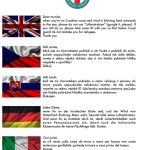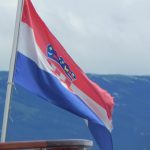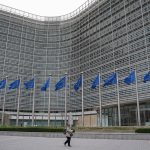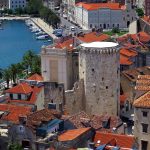ZAGREB, March 30, 2019 – Independent Democratic Serb Party (SDSS) leader Milorad Pupovac said on Saturday that the participation of his party in the forthcoming European Parliament election was emancipating for the Serbs in Croatia.
“Participation in the forthcoming European Parliament election is emancipating and liberating for the Serbs. In doing so, we can help change the atmosphere in Croatia, help people free themselves from fear and stereotypes, and have a greater sense of freedom. If we manage to achieve that, we will be in the European Parliament and in the European atmosphere no matter how many votes we win. And if we do win one seat, which is what we are striving for, that will be a huge achievement,” Pupovac told Croatian Radio in an interview.
Asked whether he would go to Brussels if he won a seat or he would give up his seat as the leader of the MOST party, Božo Petrov, had announced, Pupovac said he had no less obligations than Petrov. “My focus is on the success of the slate and the party and on the success of the people on the slate and less on my own success,” he added.
Speaking of the reasons why the SDSS was running in the election on its own, Pupovac said: “The HNS (Croatian People’s Party) initiated talks with us to run together in a coalition, but then they changed their mind and decided that they could give us only one or two places on the slate, which we could not accept.”
Pupovac said that his recent threat of leaving the ruling coalition was serious. “We reached a line we couldn’t and shouldn’t cross. The line is still here and we’re still walking on it. We don’t want to cross it and that’s what our message was about. We analysed the political circumstances and activity of the SDSS and generally the exercise of rights by Serbs in Croatia, the state of democracy and democratic values on the one hand and the implementation of operational programmes for the minorities in Croatia, including the Serbs, on the other,” the SDSS leader said.
“Attacks on constitutional and democratic values by far right, historically defeated forces in Croatia have become too strong over the past year and too widespread in the political and public sphere,” he added.
Pupovac said that the problem lay in a conflict between policies aimed at restoring values that were essentially undemocratic. “The policies that were defeated in the Second World War and the policies of the war in the 1990s, and the lack of preparedness on our part as the coalition and government. I say ‘our’ on purpose because we cannot deny our responsibility for this regardless of how much we are actually involved in the government. The lack of preparedness to recognise what is going on and respond to what is going on. We as the ruling coalition and as the government should have recognised these phenomena and responded to them in time.”
He explained why he supported the government of Prime Minister Andrej Plenković. “That’s why we joined the coalition and what we were working on during the first two years in office – to remove chauvinistic phenomena and radical, exclusive historical revisionism from the public and political mainstream, especially the denial of war crimes committed by the (Nazi-allied) Ustasha movement during the Second World War.”
Pupovac said that the SDSS had threatened to leave the coalition unless the policies were changed. “If we have agreed to restore electricity and water supply in areas where Serb refugees have returned, then this agreement should be strictly observed, rather than have someone at a lower level reduce the agreed amount of money,” he said.
He noted that the restoration of electricity and water supply, as agreed under the operational programme, had begun last year, adding that “neither the government of Zoran Milanović nor of Jadranka Kosor, and especially the government of Tihomir Orešković, paid any attention to that.”
The SDSS leader explained why Prime Minister Plenković’s wish for a single commemoration ceremony at Jasenovac, the site of an Ustasha-run concentration camp during the Second World War, was unlikely to come true this year either.
“The question of negationism and radical historical revisionism by those who would want to completely change the 20th century history of Croatia, to make something white out of black, make something clean out of something dirty, make something true out of lies and turn the truth into a lie. At a time when every effort is made to say that Jasenovac did not exist, and such people are allowed on public television, in public libraries, pastoral centres, a diocesan centre, it is not realistic to expect us to say, ‘well, that’s nothing,’ while at the same time the Bleiburg myth continues to be fostered the way it is. These two things cannot go together,” Pupovac said.
Pupovac said it was unacceptable to him that 2 million kuna (270,000 euro) was annually allocated for the Jasenovac Memorial Centre and 40 million kuna (5.4 million euro) for the Vukovar Memorial Centre.
“These are the reasons why we must seriously discuss how to change the practice of commemorating events from the Second World War and the war that broke up our common state. If we find that, we will be together again,” Pupovac said.
He also spoke of his attendance at a ceremony that commemorated NATO’s bombing of Serbia. “I was there to pay tribute to the people who were killed in NATO’s bombing campaign in 1999, just as I attend commemorative events elsewhere,” Pupovac said.
More news about the elections in Croatia can be found in the Politics section.







